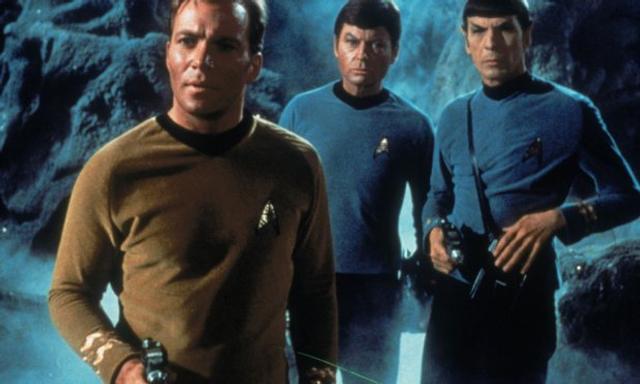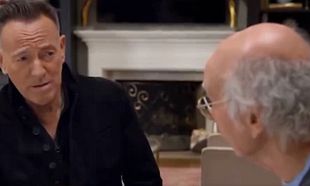Today marks the 50th anniversary of Gene Roddenberry's Star Trek.
Undoubtedly, it's a milestone for television, sci-fi and its incredible impact on popular culture is still being felt to this day. However, fifty years ago, Star Trek was just another show. Sort of.
Written by a former Air Force Captain-turned-speechwriter, Roddenberry's vision of a utopian, pan-cultural starship voyaging through uncharted space was warmly received by television studios, but dismissed out of hand as being "too cerebral" by one executive. Yet, Roddenberry persevered and, after two pilots, birthed Star Trek as we know it today.
It's hard to now understand just what a shock Star Trek was to audiences in 1966. Not only was it unheard of to see a black woman on the bridge of a ship, not one single member of the crew made reference to the colour of her skin. This was at a time when American society was deeply divided and racial segregation was still an issue. Better still was Chekov, a Russian helmsman who quoted his namesake and sported a Beatles haircut - again, all this at a time when US politicians were screaming about Reds Under The Bed and Communist aggression from the Soviet Union.

When we think of prestige television, we think of complex and engaging storytelling with thought-provoking, cerebral characters with high production values to bolster it all. The stories aren't always worked out by the end of the episode, they're not always a happy one and there is a true sense of a believable universe. For viewers in 1966, Star Trek was their Game of Thrones. It had a huge production budget for television at the time, almost bankrupting its production house Desilu Studios. Episodes like The Menagerie were complex storylines involving emotional plots with series regulars. Others, like The Trouble With The Tribbles, were more lighthearted. Each episode gave a new and in-depth look into a fantastical new world that audiences had never before seen.
Such was the fervent response from fans that NBC literally had to post a message at the end of an episode in Season 2 asking them not to send any more letters asking about the show's future. Fans became obsessed with the show and regularly flooded Gene Roddenberry's offices with endless questions about the life of the USS Enterprise and her crew.
Running for a total of three seasons and seventy-nine episodes, Star Trek was cancelled in 1969. During its initial run, the show had moderately successful ratings. What made Star Trek so successful for Paramount and engendered itself to so many people was its repeats on syndication, playing for well over ten years after its initial run. Like Breaking Bad or The Wire, it took on a second life and earned itself countless fans after its first screening on television. By 1979, such was its popularity (and that of George Lucas' Star Wars) that Paramout decided to give Star Trek another run with a series of films, beginning with Star Trek: The Motion Picture and continuing right up to present day.
Fifty years on, Star Trek is still a powerful vision of the future.









































































